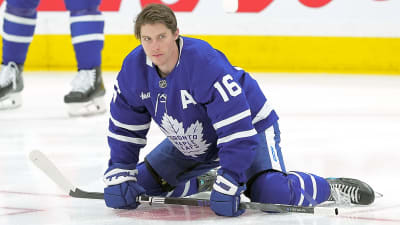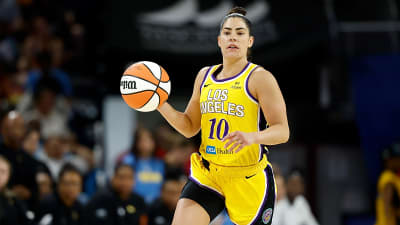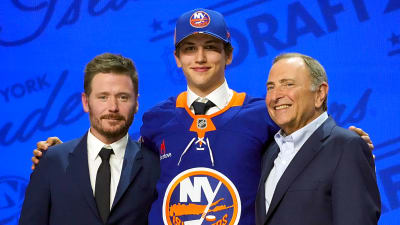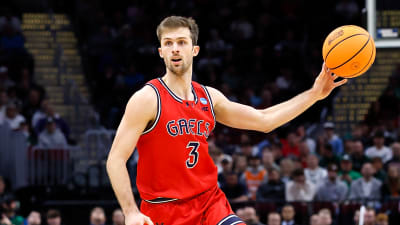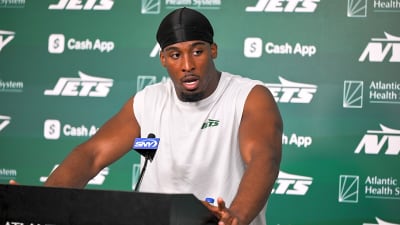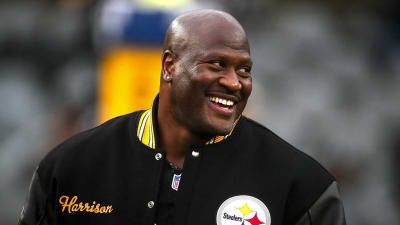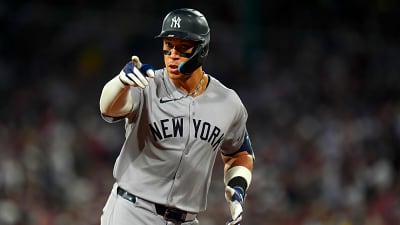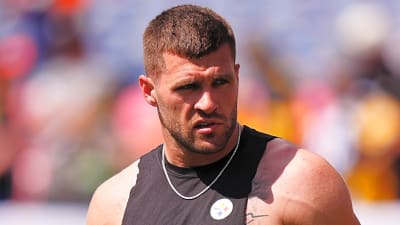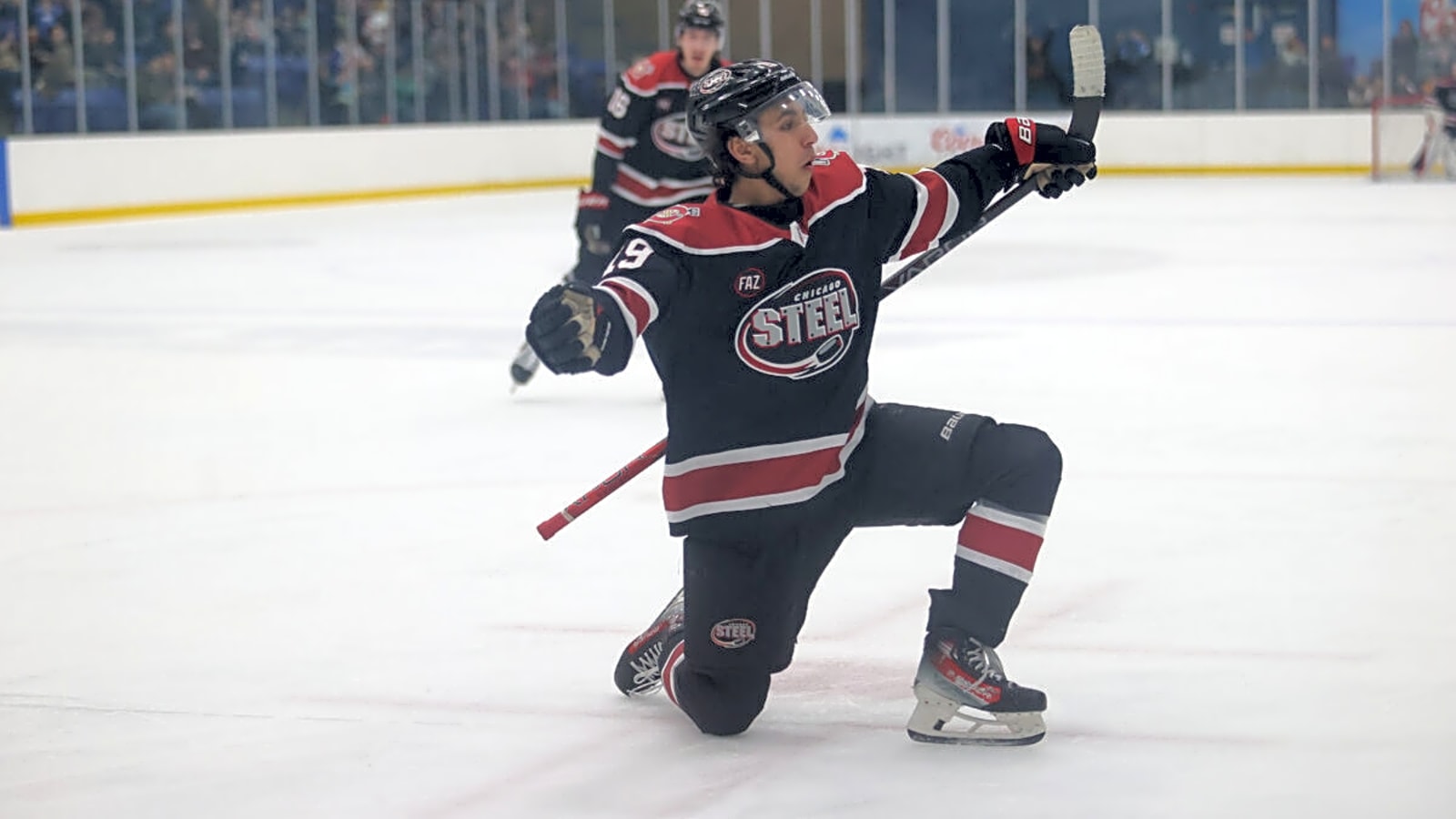
The Montreal Canadiens’ 2024-25 season has come to an end, and surprisingly, it came in the playoffs. While last summer, everyone expected the franchise to take a step forward, few people outside of the Canadiens’ dressing room expected a playoff appearance. With this huge step forward comes two things: expectations and the need to improve to meet them. This means the club and its youthful roster is now thrown into the deep end, and they will need to learn how to tread water and ensure they remain a playoff team in subsequent seasons.
The NHL has stood up and taken notice of the upstart Canadiens. They will not be surprising opponents anymore, as teams will take them seriously from day one. At the end of the season press conference held on May 5, executive vice president Jeff Gorton admitted that the team needs to improve in several areas. While they have taken a significant step forward in the rebuild, they will need to find a way to add to the roster and avoid taking two steps back.
Canadiens Must Avoid Taking a Step Back
Yes, the Canadiens were the youngest team (by average age) to make the playoffs in NHL history; however, with the inevitable loss of some of the veterans from that roster, such as Joel Armia, David Savard, and Michael Pezzetta, the club is set to become even younger, but Montreal cannot allow the team to become too young next season. They require some veteran leadership and experience to be able to navigate the next stage of the rebuild or risk taking two steps back.
General manager (GM) Kent Hughes will need to be strategic in his pursuit of veterans. This means he will need to address deficiencies without blocking the path of their prospects earmarked as part of the core, such as Michael Hage and David Reinbacher, two guys who are a season or more away from filling key roles for the club. Hughes does have some homegrown options to help. He can choose to keep Christian Dvorak for the short term while Owen Beck ripens in the American Hockey League (AHL), especially if the team cannot make a deal for a proven second-line centre.
It makes sense as the team need a third-line centre, as well as a left-handed centre who can reliably win faceoffs, which he did at a 55.8% success rate. Also, he centred the Canadiens’ most reliable depth line between Josh Anderson and Brendan Gallagher, who both had a resurgence thanks in part to Dvorak’s defensive support. Their line was in the top 10 in expected goals for in the NHL among lines with 500 minutes played together.
Now, Hughes will need to look outside the system to fill certain needs immediately. Nick Suzuki, with his back-to-back 30-goal seasons, has proven he can be a top-line centre and point-per-game player. However, without another offensive option at up the middle, it is too easy for teams to game-plan against Montreal, especially in the playoffs. That’s why a hunt for a proven second-line centre should be at the top of Hughes’ to-do list.
On defence, the heir apparents on the right side are Logan Mailloux and Reinbacher. Now, the chances that both are ready to make the leap to the NHL aren’t as high as some would hope. Reinbacher missed significant time this past season due to injury, and while he looks very good in the ongoing AHL playoffs, he will likely need more time to cook on the farm, something he has stated in an interview with RG.org is an expectation of his. This approach is something the Canadiens brass have repeatedly said they’d prefer for their prospects if possible. What does this mean? Well, it is unlikely that both defenders make the leap, and not just due to their NHL readiness, but also due to a need for some additional veteran help as Montreal’s blueline — especially now without Savard — is very young. For the team to take a step forward in their rebuild, they will need their blue line to be not only dynamic, as it has been at times, but also reliable in their own zone.
Canadiens Next Steps?
What the series against the Washington Capitals showed is that size does make a difference. But being big isn’t enough: speed, an ability to play with pace, and a mean streak are all necessary to find success. This is where adding strategically means filling needs without blocking the upward progression of their top prospects. Everyone needs to remember that the deep prospect pool, while a great asset, means that not all of them will make the NHL with the Canadiens; some will be used as trade bait. Also working in Hughes’ favour is the number of draft picks the team owns, including two first-round picks (the 16th and 17th overall picks in 2025).
While there are defenders who fit that desired playoff-style mould in Montreal such as Arber Xhekaj and Jayden Struble, it is only something they can provide in a bottom pairing. Only Kaiden Guhle has those attributes in the top four, something that Mailloux or Reinbacher haven’t proven capable of yet in the NHL. That’s why Montreal seeking a veteran defender would be a way to fill a specific need while adding experience.
Hughes could go big game shopping on the open market. As of May 5, Aaron Ekblad is an unrestricted free agent (UFA.) He’s a right-handed defender who has a large frame, plays with a mean streak, and has the playoff experience the Canadiens would look for. However, he would be very expensive to sign off the open market, possibly commanding more than $10 million per season, and that would likely be very long-term. A trade for a less expensive defender, such as MacKenzie Weegar, who can play heavy minutes in all situations, put up points, and play a physical style. Je is under contract for six more seasons and at 32 years of age, also has the experience Montreal would benefit from. However, a trade like that would be costly, especially as the Calgary Flames are looking to improve as well.
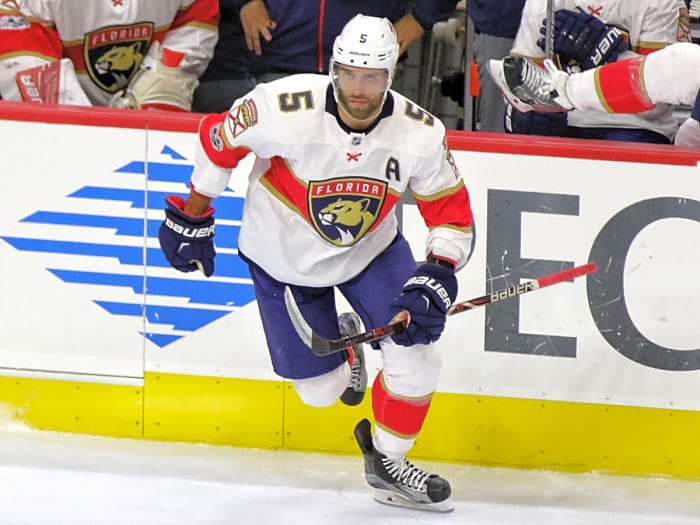
It’s expected that the Canadiens will address their centre depth this coming offseason because it isn’t expected for Kirby Dach to be the solution for the top six at centre. Going after UFAs can be expensive, and going this route to fill more than one need could put the salary cap structure off balance. I mention that as many would immediately think of possible UFA centre Sam Bennett, but with the expectation that he would want a long-term deal at more than $9 million per season, which could be too rich for Hughes to pursue. A trade, however, is plausible; even if Hughes made a trade to fill needs elsewhere, he has the assets at his disposal.
Now that the New York Rangers have JT Miller and Vincent Trochek, they could be persuaded to part with Mika Zibanejad. While he isn’t a player who plays an overly-physical style, he has the size (6-foot-2, 203 pounds) and the ability to play and excel in physical games, including in the playoffs. At 32 years old, he could bring the experience and leadership the Canadiens require, and his two-way abilities do fit in with the team’s style. However, he has a full no-movement clause and is under contract at $8.5 million per season for five more years, making him 37 when his contract ends. The cost to acquire the centre, who has only had one season above a point per game, would be very high.
Another perhaps more-likely option is left-handed centre Bo Horvat. The New York Islanders will be under new management, and that could open the door to some big trades. The 30-year-old Horvat has a large frame at 6-foot-1 and 215 pounds, he also plays a more physical style than Zibanejad. Currently, he is the Islanders’ top line centre and is under contract for six more seasons at $8.5 million, which, under the higher salary cap expected, is an affordable option even on a second line. He is strong in the faceoff circle, winning 58.2% of his draws and playing a two-way style while producing 60 to 70 points in a season.
For Montreal to take a step forward, it will be important to add players with size, skill, and high compete level who can perform in a playoff environment. The key will be to identify if they have that in the system or need to look outside. The Canadiens have talent coming with a core nucleus of players forming. Hughes will need to display restraint to avoid making a move that can hurt the salary cap structure, but also must avoid blocking his top prospects from moving forward.
More must-reads:
- 2025 NHL Draft winners, losers: Big night for Islanders but not for the fans
- Why Islanders drafting Matthew Schaefer with No. 1 overall pick is a bit of a gamble
- The 'Most goals in a Stanley Cup Playoffs' quiz
Breaking News
Trending News
Customize Your Newsletter
 +
+
Get the latest news and rumors, customized to your favorite sports and teams. Emailed daily. Always free!
